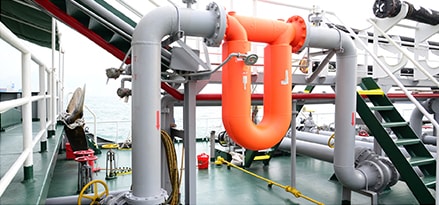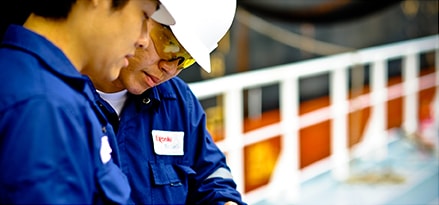Cold corrosion
The main engines affected are those designed to comply with the Tier II NOx regulations and the latest Energy Efficiency Design Index (EEDI) guidelines. The issue can be exacerbated by slow steaming operational practices – as well as new engines with higher pressures at low- and part-load – and by using fuels with high sulphur content. Older engine designs that have been modified with fuel optimization kits for low-load and part-load operation to enable effective slow-speed running have also been affected.
Cold corrosion can be counteracted by raising the temperature of the exposed parts of the cylinder liner through modifications to the cylinder liner design and the cooling water system. To prevent the onset of cold corrosion, our MobilGard™ Cylinder Condition Monitoring (CCM) enables cylinder conditions to be closely monitored and cylinder oil feed rates to be optimized accordingly. This helps to enable safe and reliable engine operation and reduce engine wear. In addition, Mobilgard™ 5100 cylinder oil delivers exceptional acid neutralization performance, deposit control and oxidation stability to help mitigate against cold corrosion, optimise feed rates and control costs.
Vessel General Permit
In March 2013, the United States Environment Protection Agency (EPA) issued a revised Vessel General Permit (VGP) that became effective on December 19, 2013, introducing new environmental regulations on vessels operating in US coastal waters. These environmentally acceptable lubricants (EAL) must be used in all oil-to-sea interfaces on any vessel greater than 79 feet. There are also stipulations to maintain seals and equipment to regulation standards, with fines for non-compliance.
Synthetic lubricants
Synthetic lubricants are unique high-performance oils that deliver superior protection and performance when compared to conventional mineral oils.
Buying ExxonMobil marine products
Mobil Serv℠ Lubricant Analysis
Mass Flow Metering System
ExxonMobil is the first organization in the marine industry to adopt a system for mass flow metering approved by a port authority (the Maritime and Port Authority of Singapore) for bunker fuel delivery.


